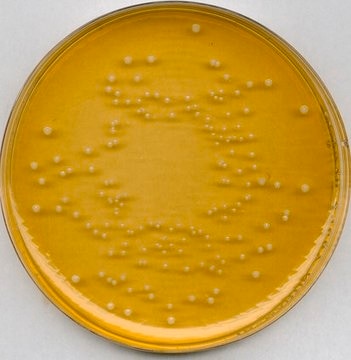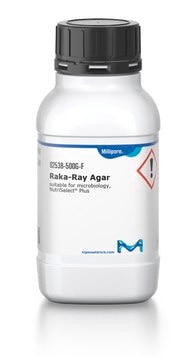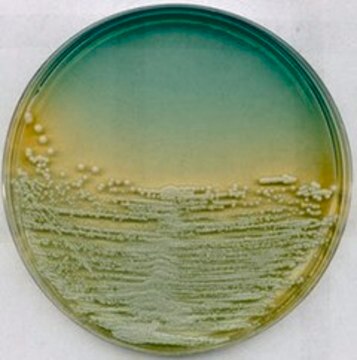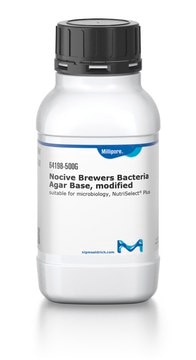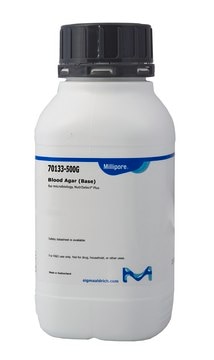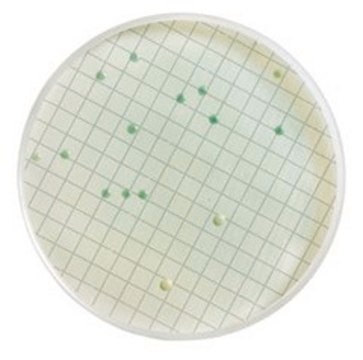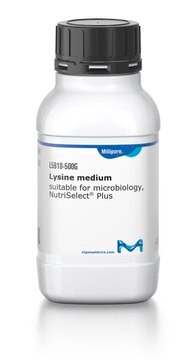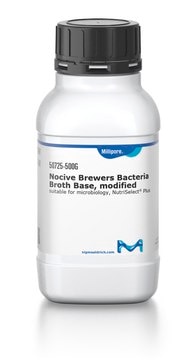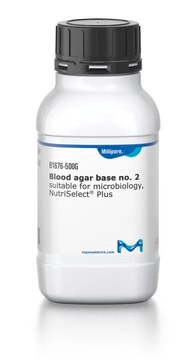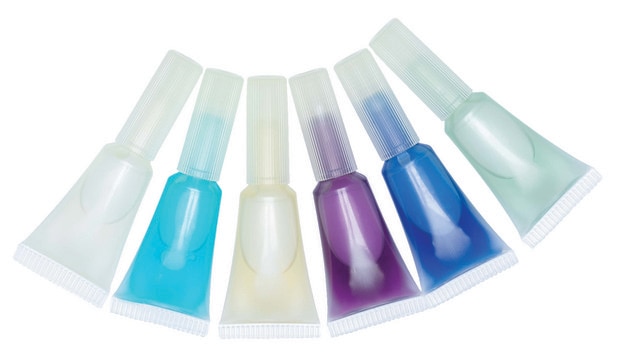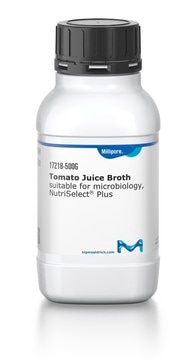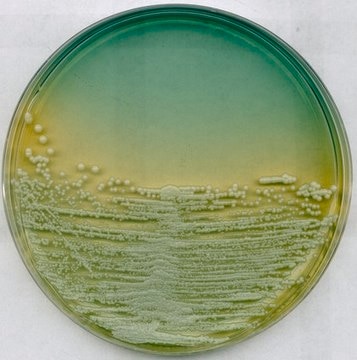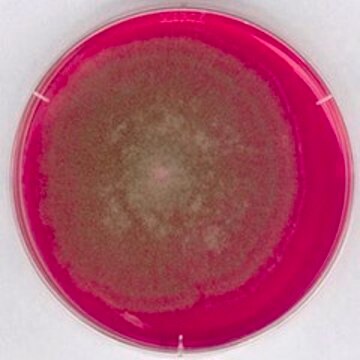17226
Universal Beer Agar
suitable for microbiology, NutriSelect® Plus
Synonym(s):
UB Agar, UBA medium
About This Item
Recommended Products
sterility
non-sterile
Quality Level
form
powder
shelf life
limited shelf life, expiry date on the label
composition
agar, 12 g/L
dextrose, 16.1 g/L
dipotassium phosphate, 0.31 g/L
ferrous sulfate, 0.006 g/L
magnesiumsulfate, 0.12 g/L
manganese sulfate, 0.006 g/L
monopotassium phosphate, 0.31 g/L
peptonized milk, 15 g/L
sodium chloride, 0.006 g/L
tomato juice, 12.2 g/L
yeast extract, 6.1 g/L
manufacturer/tradename
NutriSelect® Plus
packaging
pkg of -500 g
technique(s)
microbiological culture: suitable
final pH
6.3±0.2 (25 °C)
application(s)
bioburden testing
food and beverages
microbiology
suitability
Acinetobacter spp.
Pediococcus spp.
selective for Candida spp.
selective for Escherichia coli
selective for Lactobacillus spp.
selective for Pichia spp.
selective for Proteus spp.
selective for Saccharomyces spp.
selective for Zygosaccharomyces spp.
selective for coliforms
Related Categories
General description
Application
Preparation Note
Footnote
The designations basic, plus, or prime are added to indicate the quality control level, from basic quality control to standard QC plus to prime for full regulatory compliance.
Legal Information
Storage Class
11 - Combustible Solids
wgk_germany
WGK 3
flash_point_f
Not applicable
flash_point_c
Not applicable
Choose from one of the most recent versions:
Certificates of Analysis (COA)
Sorry, we don't have COAs for this product available online at this time.
If you need assistance, please contact Customer Support.
Already Own This Product?
Find documentation for the products that you have recently purchased in the Document Library.
Customers Also Viewed
Articles
Molecular biology-based methods, like PCR, can be used for lactobacilli detection. However, they are often quite expensive. We provide a revolutionary molecular biology method that is rapid, easy, and cost-effective.
Traditional methods are based morphology, staining methods, enzyme reactions (metabolism) and diverse media.
Today, diverse studies report the benefits of probiotics, such as inhibitory effects on pathogens, aid in the management or prevention of chronic intestinal inflammatory diseases or atopic syndromes, and support to the immune system. Potential beneficial applications abound, researchers continue to evaluate the effictiveness and clarify the mechanisms of action of probiotics.
Our team of scientists has experience in all areas of research including Life Science, Material Science, Chemical Synthesis, Chromatography, Analytical and many others.
Contact Technical Service